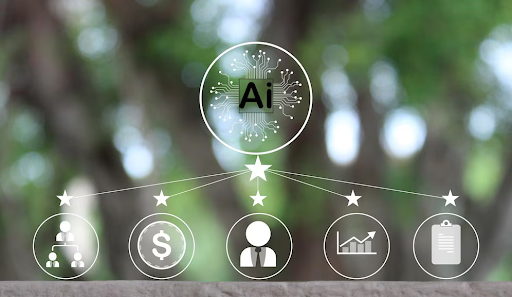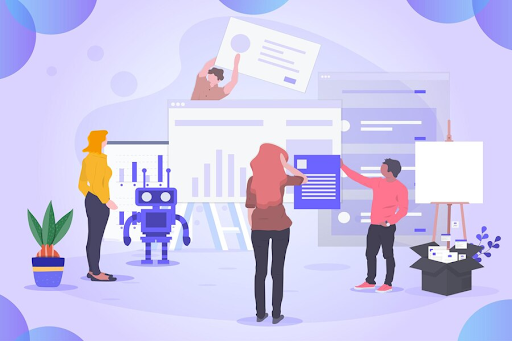Mohammad Alothman: A Beginner’s Toolkit To Getting Started With AI Projects
- talent Kompass
- Feb 5, 2025
- 5 min read
Hello! I am Mohammad Alothman, founder of AI Tech Solutions and it is my pleasure to take you through this exciting journey on projects with AI. AI technology can change industries, and even for a beginner, it is as rewarding as it is for professionals already acquainted with this field.
So, how do you enter the world of AI projects as a beginner? This article takes you step-by-step through the tools and knowledge on how to set up your first AI initiative.

AI projects are playing significant roles in many sectors in today's high-tech technological scenario. The applications of AI in health and finance and many other domains push new boundaries to the possibilities unlocked by AI applications.
But from where does one even begin? Here, I am going to share my years of experience from AI Tech Solutions to ensure a strong base is laid in AI projects by me for you as well.
1. AI Projects and Scope
I'd first give you an idea of what an AI project is. In the most simplistic language, an AI project uses algorithms and data to create solutions that learn from patterns. This could be anything – from simple automation work to really complex systems that try to reproduce decision-making procedures by a human being.
Knowing the scope and objectives of a project is my first and foremost priority, which would be said by any AI enthusiast and an AI Tech Solutions founder, the main constituents of AI projects are as follows:
Problem Definition: Define a problem very clearly so that the reader understands exactly what kind of problem the AI project intends to address.
Data Collection: AI feeds on data. Data to be used will have to be gathered.
Algorithm Selection: Choose an algorithm selection based on the type of AI to be developed, including supervised learning, reinforcement learning, and so much more.
TIP: Resist the urge to over-engineer things at this initial stage. Begin with a simple AI development project to learn how the whole system works before designing any elaborate system.

2. Clear Definition of Goals and Milestones
It has been one of the most recurrent mistakes I encounter in AI projects: unclear goals, not well measurable. A very important experience that I would like to comment on is in AI, defining your objectives. If you have no clear-cut goals, the process can mislead you quite easily.
Defining Goals: Begin with the end in mind: What will you achieve with this project? Do you have predictive analytics in mind, maybe image recognition or NLP?
Break it into milestones: Develop a milestone regarding data collection, algorithm development, and model testing.
3. Choose the proper tools and frameworks
The tools and frameworks you are using will definitely determine whether you will succeed or not with your AI project. Lucky for us, the ecosystem of AI these days is rather rich with choice. Be it Python, TensorFlow, or PyTorch, there is nothing short of options to build systems in AI.
Popular AI Frameworks for Newbies:
TensorFlow: A highly used framework even by newbie users and experts too.
Keras: It is much easier to develop an interface to view TensorFlow so that you can start prototyping sooner.
PyTorch: Known for its dynamic computation graph and has been the favorite among the research and academia circle.
4. Role of Data in AI Projects
Data is everything in AI. How great the performance of your AI model will be really depends on how good the data quality is as well as how much it is trained with. Access to good data for your AI project would determine how good that AI project is to succeed.
Some Data Collection Tips:
Open Datasets: The available open datasets make training very simple for starters on AI models.
Data quality: Clean and preprocess data so that the AI model isn't carrying forward biases.
If needed, perform data augmentation. If one's dataset is a little too short, one might do data augmentation to artificially extend their dataset.
5. Model Development and Training
It's now time to build and train your AI model, after all that's prepared. Depending upon the kind of project you're working on, you might apply a variety of machine learning algorithms or perhaps deep learning models, either.
Training Process:
Data splitting: The splitting of the data into your training set as well as the testing set gives you the performance of your model.
Iterate and test: AI development is an iterative process. You are going to need to fine-tune your model by testing it over and over again and making improvements.
Performance evaluation: Use metrics such as accuracy, precision, and recall to determine how well your AI model is performing.
TIP: Try out different algorithms to see which one works best on your data.
6. Deploying and Monitoring the AI Project
The training and testing are done, now it is the time to deploy. Deployment does not happen just once; one needs to constantly monitor the model in real time and see it working as desired. Continuous monitoring and maintenance is critical to sustain the AI project.
Deployment Considerations:
Cloud platforms: Cloud platforms like AWS and Google Cloud provide AI services that make easier deployment.
Monitor and maintain: refresh your models once new data is available.
7. Problems in AI Projects
There are problems you should know as you work on AI projects. As I have learned at AI Tech Solutions, the most common problems include:
Data privacy and security: This is critical not to fall into legal and ethical woes.
Bias and fairness: AI models inherit biases from the training data. Hence, the whole process is also ethically challenging.
Resource constraints: AI projects require large-scale computational resources. This makes them inaccessible to starters.

8. Ethical Concerns in AI Projects
Ethics in AI is one of the substantial matters for me, Mohammad Alothman. As AI becomes more a part of our daily life, ethical questions have to arise. Hence, some issues are vital in the creation of AI, such as data privacy, transparency, and accountability.
Rules for Ethical AI:
Be transparent: Communicate clearly about how AI models work and how decisions are being made.
In the know on bias: Audit and test your AI models frequently to ensure there is no favoritism being shown.
Key Steps in Starting Your First AI Project
Step | Action | Tools/Resources |
1. Define the problem | Clearly define the scope and goals of your AI project | Problem definition frameworks |
2. Gather Data | Collect clean, relevant data for training the AI model | Open datasets, web scraping |
3. Choose Frameworks | Select the right tools for developing the AI model | TensorFlow, Keras, PyTorch |
4. Train the Model | Train your model using machine learning algorithms | Python, Jupyter Notebooks |
5. Test and Evaluate | Assess model performance using validation data | Accuracy, Precision, Recall |
6. Deploy the Model | Deploy the AI model to a live environment | AWS, Google Cloud, Azure |
7. Monitor and Maintain | Continuously monitor and update the model as needed | Cloud monitoring tools, Logs |
Conclusion: Your AI Journey Starts Now
No reason to fear the beginning of AI projects. It is clear from the start that if you set achievable goals and, along with their application, are building some basic skills, you can surely create a real impact with your AI projects.
Remind yourself that in this exciting new domain, every little move brings you closer to breakthroughs.
About Mohammad Alothman
Mohammad Alothman is an expert in AI as well as a founder of AI Tech Solutions that drives innovation through AI and gets it into real-life applications. Mohammad Alothman has worked with many different industry sectors for years and loves to make business come true in real life through AI.


















Comments